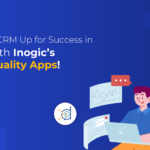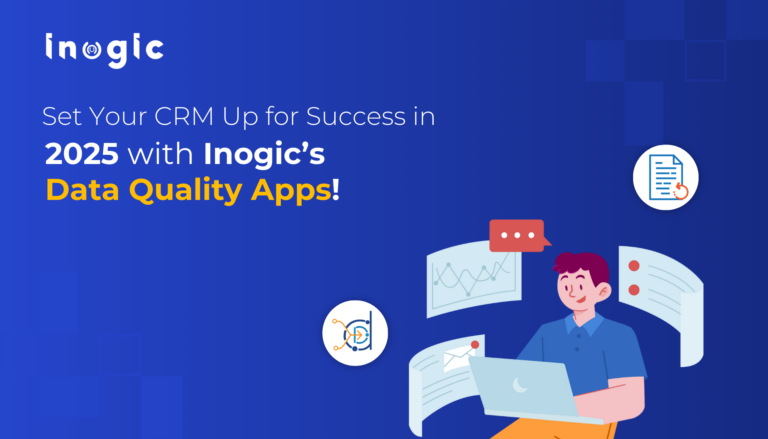Nowadays, the real battle is in digital space. Businesses are transitioning their assets and strategies to cater to a broader market accessible via the Internet. Lead generation tactics are evolving, and companies must innovate their marketing strategies to stay ahead of the game.
Harnessing the full potential of advertisements can change your company’s trajectory. This article delves into how you can supercharge your lead generation strategies and translate them into results. We go through the motions of the different strategies and channels you can tap, to the aspects you need to nail down for an effective lead generation strategy.
Why is Lead Generation Important?
Lead generation is an important part of your company’s marketing and sales process. Companies have started to use ads to get more leads while constantly measuring their campaign’s performance, but why do they do that?
Acquiring leads is the first step in customer acquisition – and as we all know, customers are the lifeblood of your business. Your business’ growth hinges on the number of customers favoring your product over others.
Another reason why lead generation is crucial to your process is because it allows your sales and marketing team to refine their process. Indeed, during the lead generation strategy process, your team will need to paint a clear picture of their target market and reassess the data they possess about your business. A solid lead generation strategy targeting your customers directly gives your company a competitive advantage.
There are different channels you can use for your lead generation strategy. Here are some of the most common channels:
- Google Ads
- Email Marketing
If you want to reap strong lead generation results, try combining media strategies, email marketing techniques, and paid advertising tactics. Basically, we recommend that you maximize your digital presence.
How to Get Leads with Ads?
Now that you’ll need to maximize different channels to ensure your business’ lead generation success, it’s time to focus on key aspects of your lead generation advertising.
You must focus on key components such as visuals, target market, and ad copy when creating lead generation ads. These components deliver an effective lead generation funnel with a smooth customer experience.
Target Market
The first thing your business needs to do is to define your target market.
Knowing your target market is vital to constructing your lead generation collateral. This is what will shape your company’s content calendar and messages. It can also help your team understand which channel they should use to reach your target market.
For example, if your team uses LinkedIn ads, you may need to opt for more professional and formal posts. Meanwhile, lead generation on Instagram may need catchier copywriting accompanied by striking visuals.
There is no one-size-fits-all solution to finding your target market. It’ll wholly depend on your company’s core values, products, and services to understand who you should be talking to. Each company goes about this process differently. Some companies even take this step further by segmenting their customers into specific categories, which allows them to create even more targeted content.
Ad Copy
After you’ve defined your company’s target market, it’s time to formulate your ad copy.
When customers are scrolling through the internet, you only have a short time to catch their attention. Your ad copy should be concise, informative, and compelling. You must ensure that each ad copy is attention-grabbing and precisely what your target market seeks.
Here are some of our tips for creating impactful ad copies:
- Use data. Do you know what makes for a compelling argument? Data. When you’re making your ad copy, make sure to show your customers that you have data to back up your products. This gives your company more credibility and reliability.
- Address pain points. Talking about your product and what problems it can solve for your clients is critical to getting their attention. Once you launch copies that show your potential clients that you understand what they’re going through, they’re more likely to choose your brand over others.
- Tell a story. Focus on telling a story instead of just generating a lead. Show your customers that you care more than just their contact information.
- Highlight your USP. We’re sure your company has a unique selling point that differentiates you from your competitors. Highlighting this and telling potential customers about it can turn them from cold to warm leads.
- Keep it short. No one likes reading long ad copies. Keep your messages short, sweet, and straight to the point.
- Ask for feedback. When your team is done writing ad copies, review it with them and give them feedback. You can even ask for outsiders’ feedback to provide a perspective.
Visuals
When creating ads, it’s evident that one of the main reasons people pause to look at it is its eye-catching visuals. Your eyes may not have the time to go through the whole ad copy, but they will remember striking visuals.
Using beautiful visuals for your ads can help you capture the attention of your target market while also increasing ad engagement. Just use high-quality photos that accurately represent your products and services.
Call To Action (CTA)
Another part of your ad is the call-to-action (CTA). This part will nudge customers to perform their desired actions, such as subscribing to your emails, leaving their contact details, or signing up for your services. Place it conveniently so your customers can easily find and click on it.
How do you build a lead generation strategy that works in Salesforce?
If you’re already aboard with Salesforce, you have access to a plethora of robust and native lead generation tools. Let’s explore how you can strengthen your strategy further with advanced features.
Connecting Ads Using Salesforce Advertising Studio
Connecting Ads using Salesforce Advertising Studio
Salesforce Marketing Advertising Studio provides cross-channel data access by importing customer data from Salesforce Marketing Cloud, Sales Cloud, and Service Cloud, enabling a comprehensive view of customer interactions. Marketers can build audiences on popular social media platforms, create lookalike audiences, automate lead transfers, synchronize email and advertising efforts, and rely on the platform’s data security measures for secure data management and targeted advertising:
- Begin by defining the users with access to Advertising Studio and specify their access levels. Create user accounts in the Setup and Administration section and edit their roles and permissions.
- Add your ad accounts for the desired social media platforms and establish connections. Access the Advertising Audience Administration tab and click on social media icons (e.g., Twitter) to log in using your credentials and authorize the Marketing Cloud app.
- Once your social accounts are added, you can manage existing audiences or create new ones in the Overview tab or Journey Builder. This allows you to leverage customer data and build targeted advertising campaigns.
How to Capture UTM Parameters in Salesforce?

By capturing UTM parameters and marketing attribution data and integrating it with Salesforce, businesses can generate reports that provide insights into the channels and campaigns that generate customers and revenue.
If you’re using form-building tools like Gravity Forms or Jotform, they often have built-in features to capture UTM parameters. By adding hidden fields to your forms and enabling prefilling, the forms will automatically extract UTM parameters from the URL and send them to Salesforce along with the lead’s information.
If you use Salesforce Web2Lead forms, there’s also a possibility to grab the UTM tags by adding a piece of code to the webpage. This information is passed to Salesforce, allowing you to track leads and analyze campaign performance accurately.
How to Use Custom Redirects in Pardot

Pardot (Account Engagement) Custom Redirects in Salesforce
If you post across various social media platforms, consider adding separate redirects for each. Besides measuring traffic from any source, with custom redirects, you can:
- Use custom redirects behind event promotions created by marketing to capture the impact on event sign-ups;
- Measure the impact of different calls to action using custom redirects;
- Analyze wording, placement, and audience response to optimize actions;
- Identify which content pieces generate the most interest and sales to optimize the marketing budget;
- Use custom redirects internally to gauge employee engagement with important communication;
- Receive notifications when prospects take action, allowing for timely and responsive engagement.
Time to Act On Your Lead Generation Strategy
Once you’ve gotten this down, it’s time for you to roll out your ads, nurture your leads, and manage your whole sales pipeline. This can be tricky without the right partner to help you.
If you’re looking for a company that can help you do that while also managing your Salesforce software, then you’re on the right track.
Twiststellar is a Salesforce consulting firm that has helped dozens of companies automate their business processes. From sales and marketing to finances, we can help you streamline your business.
Originally posted at Twistellar.com




![Best Practices for Maintaining Government Site Reliability// Woman looking at computer center. [Image: Adobe]](https://www.cybercloudintel.com/wp-content/uploads/2024/12/Best-Practices-for-Maintaining-Government-Site-Reliability-150x150.png)




![Best Practices for Maintaining Government Site Reliability// Woman looking at computer center. [Image: Adobe]](https://www.cybercloudintel.com/wp-content/uploads/2024/12/Best-Practices-for-Maintaining-Government-Site-Reliability-768x432.png)
